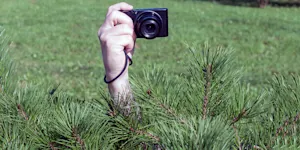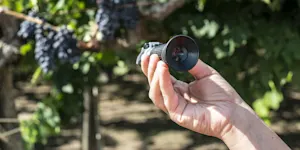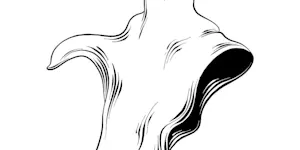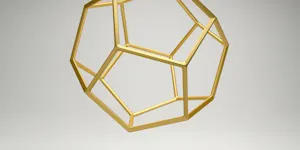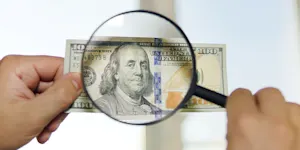What Makes This Word Tick
An "oeillade" is a delightful nod to the art of nonverbal flirting, akin to casting a secret lure with one's eyes. It's a noun that dances onto the page as a sort of coded message — a meaningful glance exchanged between two people, often filled with interest or approval.
If Oeillade Were a Person…
Imagine oeillade as a charming French romantic, perpetually donning a beret and sipping espresso at a Parisian café. This person would be suave, embodying the skill of conveying volumes with just a fleeting, enigmatic gaze. Their mere presence would sprinkle a room with intrigue and allure, without uttering a single word.
How This Word Has Changed Over Time
Though it may sound fancy, "oeillade" has carried its flirty, eye-based essence across generations. Today, its grandiloquent flair adds a touch of vintage elegance to the digital era of emojis and texts, keeping the art of subtlety refreshed and alive.
Old Sayings and Proverbs That Use Oeillade
Oeillade may not headline age-old English proverbs, but it certainly captures the sentiment behind expressions like, "If eyes are the windows to the soul, an oeillade is the keyhole." It encompasses the old idea that much can be said without a word.
Surprising Facts About Oeillade
Here's a fancy tidbit: "Oeillade" springs from French origins, with "œil" meaning "eye." The notion of such expressive glances harks back to an era when it was improper to express affection overtly, thus elevating this silent communication into an artform.
Out and About With This Word
Oeillade might pop up in tales of yesteryears when courtship had its own codes. Imagine a 19th-century ball where young debutantes exchange oeillades with eligible suitors across candlelit rooms, mimicking today’s subtle dictates of romance at social gatherings.
Pop Culture Moments Where Oeillade Was Used
While Hollywood movies might not title a scene with "oeillade," think of classic film moments when two characters lock eyes across a crowded room, sending sparks that are positively palpable. These unscripted acts redefine tension and connection.
The Word in Literature
Expect to encounter "oeillade" in works of romantic or historical fiction, where the art of eye contact is emphasized. Writers like Jane Austen threaded the intensity of such glances between pages, giving readers a taste of longing that could drive entire subplots.
Moments in History with Oeillade
In the time of high society balls and subtle flirtations, oeillade had its moment to shine. During the storied reigns of European royalty, where outward displays of affection were rare, powerful men and women wielded their oeillades like a perfectly placed chess move.
This Word Around the World
Across cultures, a seductive glance can channel similar nuances as "oeillade." Whether it's a bashful sidelong glance in Japan or a steady stare in Italy, each culture has its own version of this knowing look that crosses linguistic boundaries.
Where Does It Come From?
"Oeillade" comes from the French word for eye, "œil," gussied up into a noun that encapsulates the enchantment of visual communication. Etymologically speaking, it's a beautiful synthesis of form and function.
How People Misuse This Word
Misuse often happens when "oeillade" is mistaken for a routine look or friendly nod, rather than its true intention—a saucier, more elusive exchange laden with purpose and perhaps a hint of romance.
Words It’s Often Confused With
Glance: A brief look might lack the depth and implication of an oeillade.
Gaze: While more prolonged than a glance, a gaze lacks the flirtatious intent inherent in an oeillade.
Wink: These involve both eyes and lack subtlety compared to the artful design of an oeillade.
Additional Synonyms and Antonyms
Synonyms for "oeillade" include "glance," "look," and "stare," although none carry the same flirtatious undertone. As for antonyms, consider "ignore" or "avert," which directly contrast with its very essence.
Want to Try It Out in a Sentence?
She cast him an oeillade from across the room, and in that fleeting moment, a world of possibilities unfolded between them.




